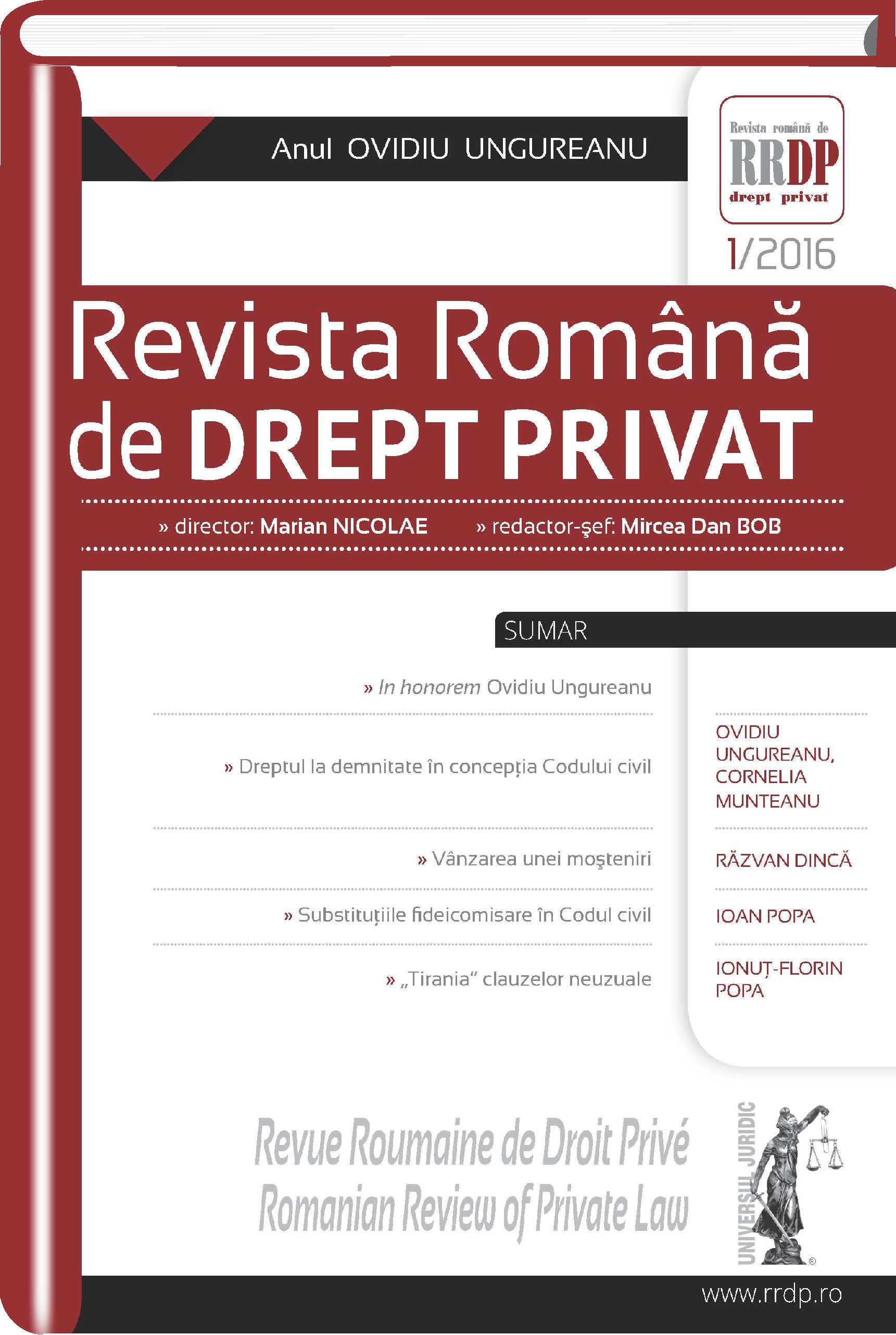Motivarea apelului în sistemul noului Cod de procedură civilă
Grounds for appeal in the system of the Code of civil procedure
The devolution limits, their exceptions and differentiation
Author(s): Alin Speriusi-VladSubject(s): Law, Constitution, Jurisprudence, Civil Law
Published by: Universul Juridic
Keywords: legal relationship of substantive law; contentious legal relationship; legal situation submitted to trial; grounds; appeal; devolution; inadmissibility;
Summary/Abstract: The examination of the rules of law, on which the grounds for appeal are based, outlines the interrelation between the legal relationship of substantive law and the legal relationship of the contentious law, in the light of the devolution of this remedy. The issues of the legal relationship of substantive law in respect of which the claimant is “contented” shall not represent the subject matter of the legal contentious relationship. On the other hand, it is undisputable that in the appeal proceedings, according to the new Code of civil procedure, the court may settle the case beyond the object of the trial in the first instance, respectively the “discontent” of the claimant, and also, beyond the subject matter of the appeal, respectively the “dissatisfaction” of the appellant. The provisions regarding the judgment of the appeal help us better understand what is subject to the trial – both in first instance, and in the appeal proceedings – and what the court shall settle. The limits of the civil lawsuit shall be provided both by the concrete and actual claims relied upon before the court, in relation to the establishment, execution or termination of the legal relationship of substantive law, and by the criticism of the judgment at first instance. The complainant shall not refer to the court only a claim regarding a legal relationship, but it also submits a legal situation for trial, which is mostly complex. This legal situation submitted for trial corresponds either to several legal relations which are closely interlinked, or to a complex legal relationship in the light of one of its elements (subjects, subject matter) or even to a legal relationship evolving or being changed into a completely different legal relationship (as in case of novation). However, as regards the interrelation between the contentious relationship and the legal relationship of substantive law, the phrase “implicit limits of the appeal” is illustrating and establishes the devolution limits. The implicit limits of appeal are provided by all legal and factual arguments on which the solution provided at first instance is explicitly or implicitly based, as compared to the express limits of the appeal, which are provided by the factual and legal arguments of the judgment at first instance, which is criticized by the appellant.
Journal: Revista Română de Drept Privat
- Issue Year: 2016
- Issue No: 01
- Page Range: 155-203
- Page Count: 49
- Language: Romanian
- Content File-PDF

